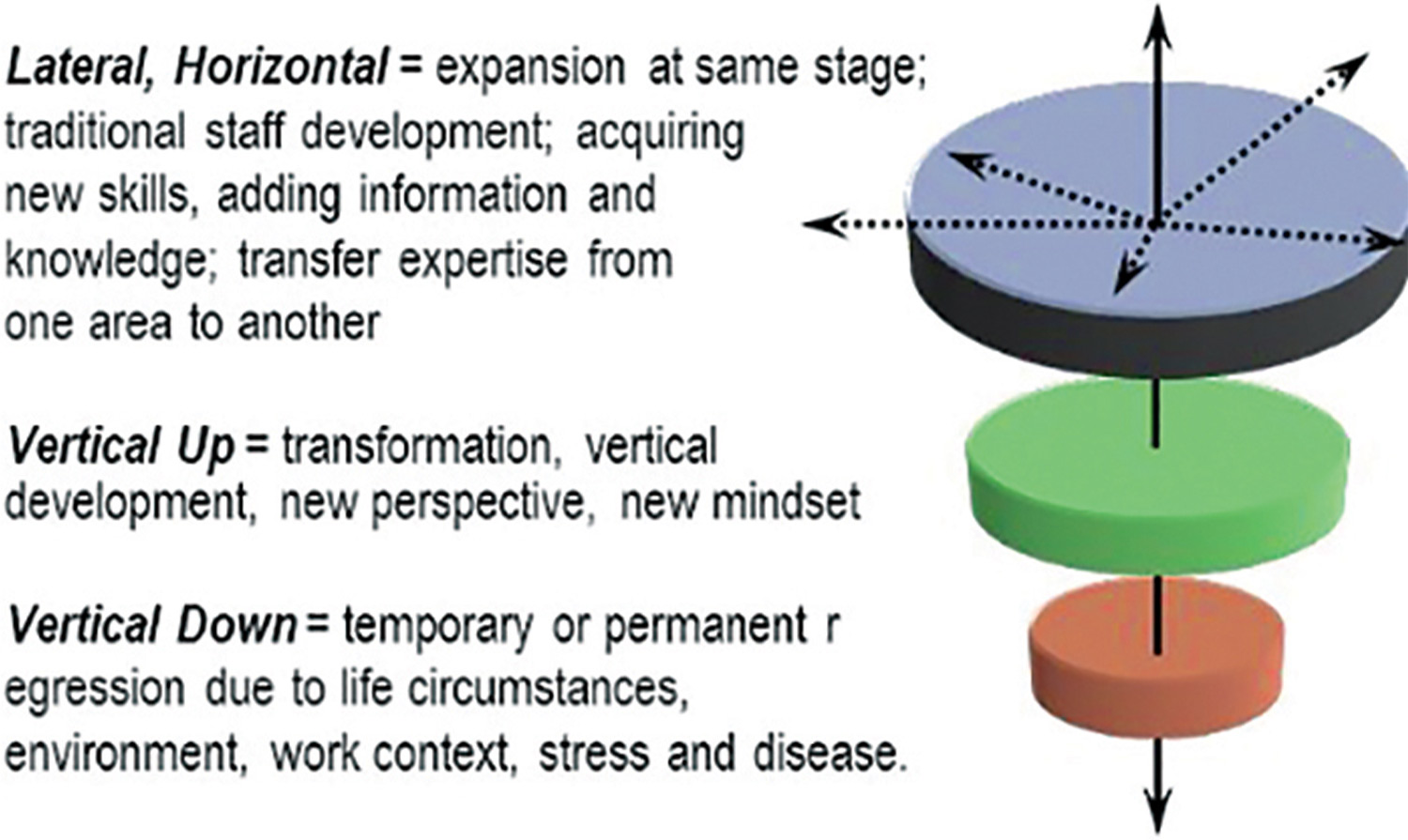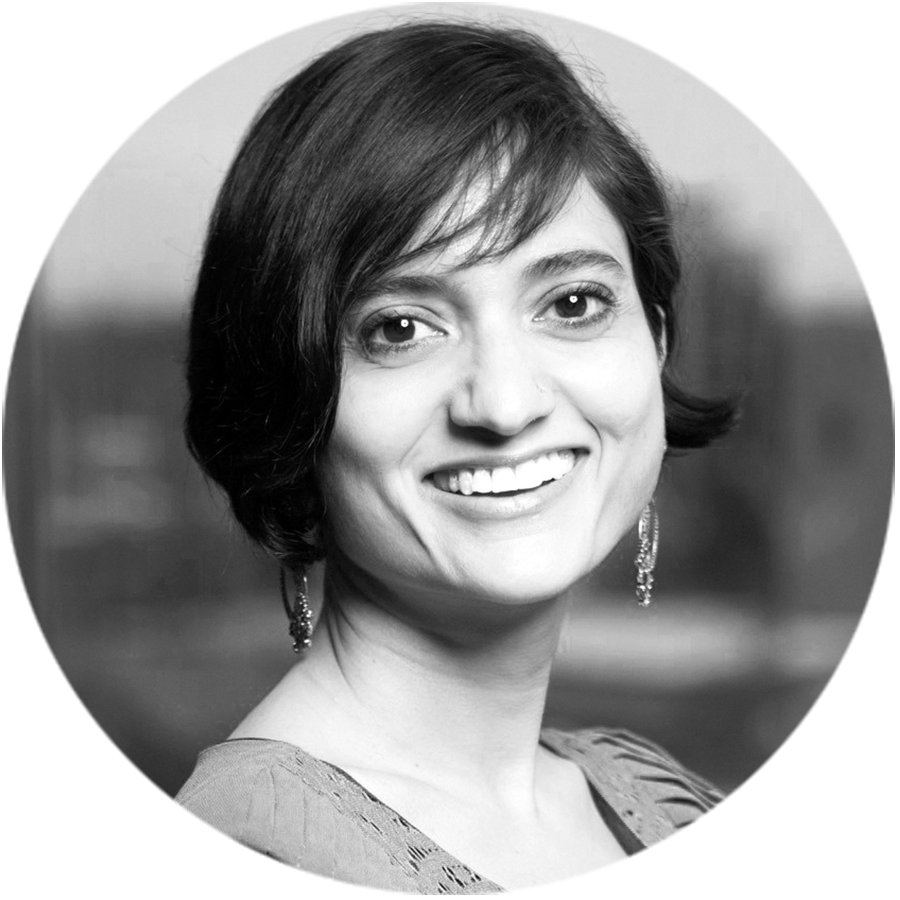Navigating the Complex World Through Vertical Development
see leaders of today facing the grand, complex, and adaptive challenges of the 21st century. For example, rapid economic growth has also brought along environmental degradation; globalization has brought people from around the world together, posing challenges to societal integration while also trying to retain ethnic diversity; improved material wealth has provided physical comfort to many but has also led to increased inequality and “diseases of affluence” such as diabetes and cardiovascular ailments; and despite an increasingly plentiful life, many youth are experiencing depression and anxiety. These challenges seem to be increasing in intensity and intractability, and a few years ago I wondered why some leaders and organizations seem to be better able to manage them than others. This query motivated me to further explore the reason behind such variation among leaders.

Many of us are familiar with the psychological assessments that show how people differ in personality type and preferences. During my Ph.D. study, I came across another way in which we fundamentally differ—our developmental stage. We humans develop in two directions, horizontal and vertical, and both are important but different in their effectiveness. Horizontal development occurs through formal education, training, skill development, and self-directed learning, as well as simply through exposure to life. So we learn new concepts and gather more information while retaining the same perspective about ourselves and the world. Vertical development in adults is much rarer and refers to how we experience our world through a new set of lenses, how we change our interpretations of experience, and how we transform our views of reality. So we differ not only in what we experience but also in how we interpret that experience, and it has a profound impact on the differences in our ability to manage complexity. Below I present a simple representation of horizontal and vertical developments as offered by Suzanne Cook-Greuter, a prominent scholar in this field.
When I learned about the nine levels of vertical developmental action logics (the beliefs or logics driving our action), my own developmental journey became clear to me. I could see where I came from and what my developmental potential is. Along came a greater appreciation of how and why we are so similar and yet so different from each other. To further clarify, I provide below a summary of the nine stages (from later to earlier) that adults traverse in their lifetime should they meet their full developmental potential.
- Adults develop in stages—from simple to complex—in such a way that each successive stage differentiates from but includes the previous stage while transcending to the next level.
- Later stages can only be reached by journeying through the earlier stages, and once we arrive at a later stage, the previous one remains part of our response repertoire.
- At each new stage, we acquire a new perspective and gain a greater ability to become aware of, pay attention to, and hence influence and integrate multiple aspects of life, much like climbing a mountain where we gain an increasingly higher vantage point.
- We increasingly experience autonomy and freedom, embrace ambiguity and differences, and acquire more flexibility, reflection, and skill in interacting with our environment.
- Our worldview evolves from simple to complex, from static to dynamic, and from egocentric to socio-centric to world-centric, i.e. from “I” to “us” to “all of us.”
- People at later stages can understand those at earlier stages but not vice versa.
- Such staged development is a life-long phenomenon of transformation, and is a function of continued interaction between adults and their environment where the environment needs to be both challenging and supporting.
I would like to emphasize here that no stage is better or lesser than the other; each has its merits and limitations. It is the context that makes one stage more suitable than the other. And so, given the increasing complexities for leaders today, postconventional stages seem more suitable for people in decision making capacities. It is because only at the postconventional stages do we begin to fully engage with and address complex, contradictory, and paradoxical issues that are becoming increasingly common. However, given the small percentage of people at a postconventional stage, I can see how most leaders are grappling with these issues, without much success. Hence, it is plausible that achieving more complex outcomes in practice requires building the capacity of leaders to process complexity. In my experience, this cannot be accomplished via horizontal development alone; it also requires vertical development, which helps expose blind spots in our worldviews and provides the resources to make increasing complexity more cognitively comfortable.
My work and personal life environments were sufficiently challenging and supportive, so I took an average of four to five years’ time to move from earlier to later stages. Given that gaining knowledge only enhances horizontal growth, reading about developmental theories was not enough to help me to transcend to the next stage. Specific long-term practices, self-reflection, action inquiry, and dialogue as well as living in the company of others further along on the developmental stage enabled such growth. Additionally, I recently underwent a vertical development training by an organization practicing in field that helped me move to my current stage.
I now invite you to take a moment and reflect on where you may be on this journey, where you came from, and the path ahead of you. Extend this inquiry and reflect on whether it allows you to have a better understanding of where people around you may be and how their worldviews differ.
